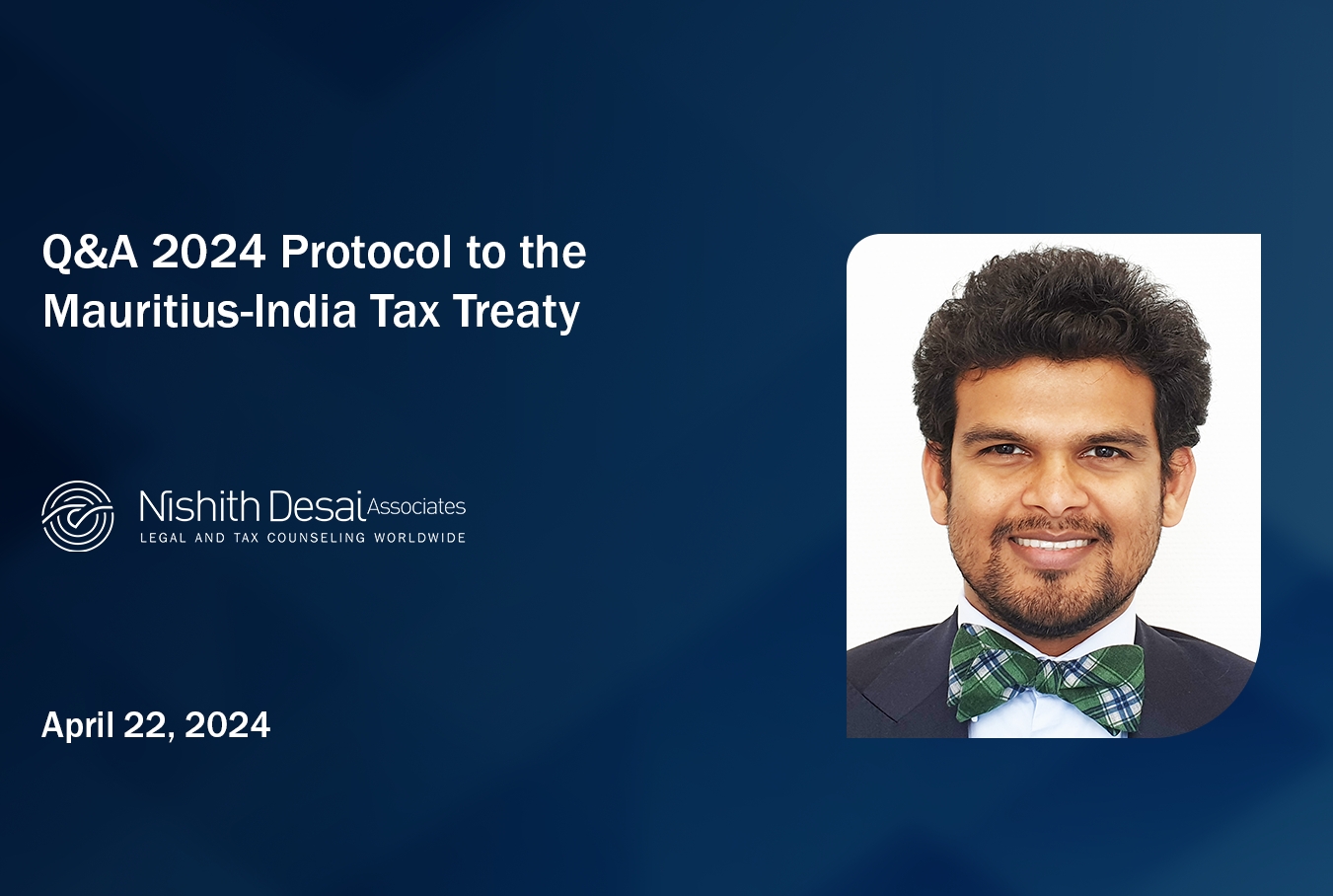Tax Hotline: Bombay High Court Interprets the “Limitation of Relief” provision of the SIngapore-India Tax Treaty
Posted by By nishithadmin at 7 July, at 17 : 04 PM Print
Warning: count(): Parameter must be an array or an object that implements Countable in /web/qlc/nishith.tv/htdocs/wp-content/themes/Video/single_blog.php on line 46
Warning: count(): Parameter must be an array or an object that implements Countable in /web/qlc/nishith.tv/htdocs/wp-content/themes/Video/single_blog.php on line 52
BOMBAY HIGH COURT INTERPRETS THE “LIMITATION OF RELIEF” PROVISION OF THE SINGAPORE-INDIA TAX TREATY
- The Bombay High Court rejected the income tax department’s invocation of the “limitation of relief” provision through which it had sought to deny treaty benefits to the taxpayer.
- The court relied on a certificate issued by Singaporean tax authorities regarding the liability to tax of capital gains, and allowed the taxpayer’s claim for exemption for capital gains under India-Singapore tax treaty.
The taxpayer was a tax resident of Singapore and registered in India as a Foreign Institutional Investor (FII) investing in debt securities. It had claimed an exemption from tax in India on the capital gains declared on the sale of debt securities under Article 13(4) of the Singapore-India tax treaty. The tax officer, however, denied the claim for this treaty exemption stating that the exemption was restricted by Article 24 [Limitation of Relief] of the treaty. This provision limits the extent to which a resident of Singapore can access treaty benefits to India-sourced “income which is subject to tax [in Singapore] by reference to the amount thereof which is remitted to or received in [Singapore] and not by reference to the full amount thereof”. In other words, treaty benefits would be available in India only in respect of income which is: a) generally taxable in Singapore irrespective of remittance; b) in respect of income which is taxable in Singapore only upon remittance, in so far as income has been remitted to Singapore.
Having adopted a partly territorial tax system, Singapore taxes its residents largely on income which is sourced in Singapore, or on foreign sourced income which is remitted to Singapore. Singapore, under its domestic law, however, does not tax capital gains. In other words, Singapore taxes capital gains at a 0% tax rate, irrespective of remittance to Singapore. The substantive issue therefore was whether treaty benefits should be restricted under Limitation of Relief provision.
The Singaporean tax authorities had issued a certificate stating that the gains from the sale of Indian debt securities were to be taxable (which is understood to be different from the actual imposition of tax) in Singapore irrespective of remittance. Relying on this certificate, the court held in favour of the taxpayer. The court found precedent in Madras High Court’s decision in CIT v. Lakshmi Textile Exporters Ltd,1 and support from the CBDT circular No.789 dated 13th April 2000.
In conclusion, the court held that the taxation in the hands of the taxpayer is based on the entire gains from sale of debt securities, and not just the gains remitted to Singapore. Therefore, relief could not be limited in terms of Article 24 of the Singapore-India tax treaty.
The Limitation of Relief provision has been in issue in several tax cases in the past.2 The High Court’s decision is a welcome step towards certainty on, first, how Article 24 of the treaty should be interpreted; and secondly, the evidentiary value of a certificate issued by Singaporean tax authorities towards the understanding of the domestic law of Singapore.
– Anirudh Srinivasan , Ipsita Agarwalla & Dr. Dhruv Janssen-Sanghavi
You can direct your queries or comments to the authors.
1[2000] 245 ITR 521 (Madras).
2Reference can be made to the position of the income tax department in the following judgements: M/s. Bengal Tiger Line Pte Ltd v. DCIT, IT(TP)A. No. 11/CHNY/2020; DCIT v. D.B. International (Asia) Ltd., ITA no. 992/Mum./2015; Far Shipping (Singapore) Pte. Ltd. v. ITO, International Taxation, I.T. APPEAL Nos. 399 to 436 (HYD.) of 2017; M.T. Maersk Mikage v. DIT (IT), Gujarat)/[2017] 390 ITR 427 (Gujarat).
Chambers and Partners Asia Pacific 2023: Top Tier for Tax, TMT, Employment, Life Sciences, Dispute Resolution, FinTech Legal
Legal 500 Asia Pacific 2023: Top Tier for Tax, TMT, Labour & Employment, Life Sciences & Healthcare, Dispute Resolution
Benchmark Litigation Asia Pacific 2023: Top Tier for Tax, Labour & Employment, International Arbitration
IFLR1000 2022: Top Tier for M&A and Private Equity
AsiaLaw Asia-Pacific 2022: Top Tier for Tax, TMT, Investment Funds, Private Equity, Labour and Employment, Dispute Resolution
FT Innovative Lawyers Asia Pacific 2019 Awards: NDA ranked 2nd in the Most Innovative Law Firm category (Asia-Pacific Headquartered)
RSG-Financial Times: India’s Most Innovative Law Firm 2019, 2017, 2016, 2015, 2014
DISCLAIMER
The contents of this hotline should not be construed as legal opinion. View detailed disclaimer.






